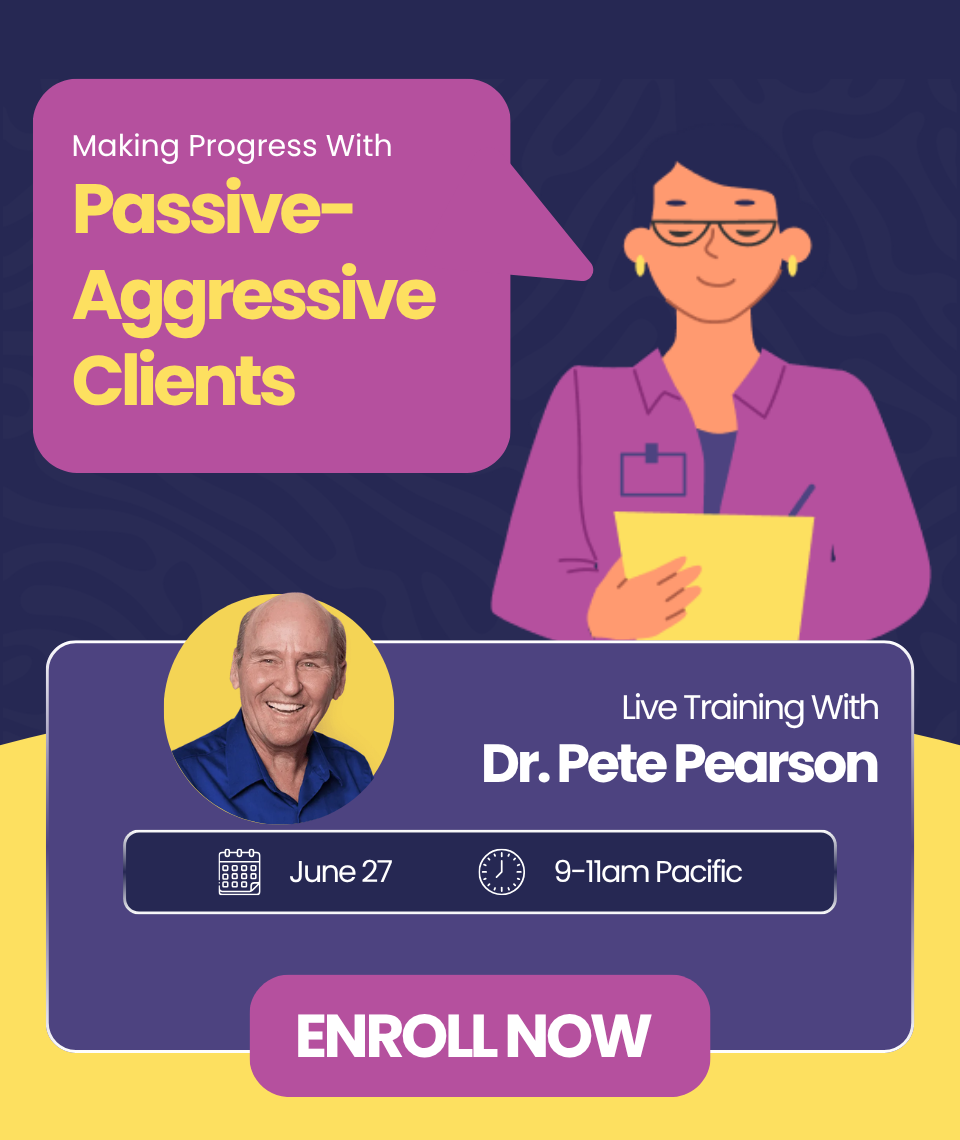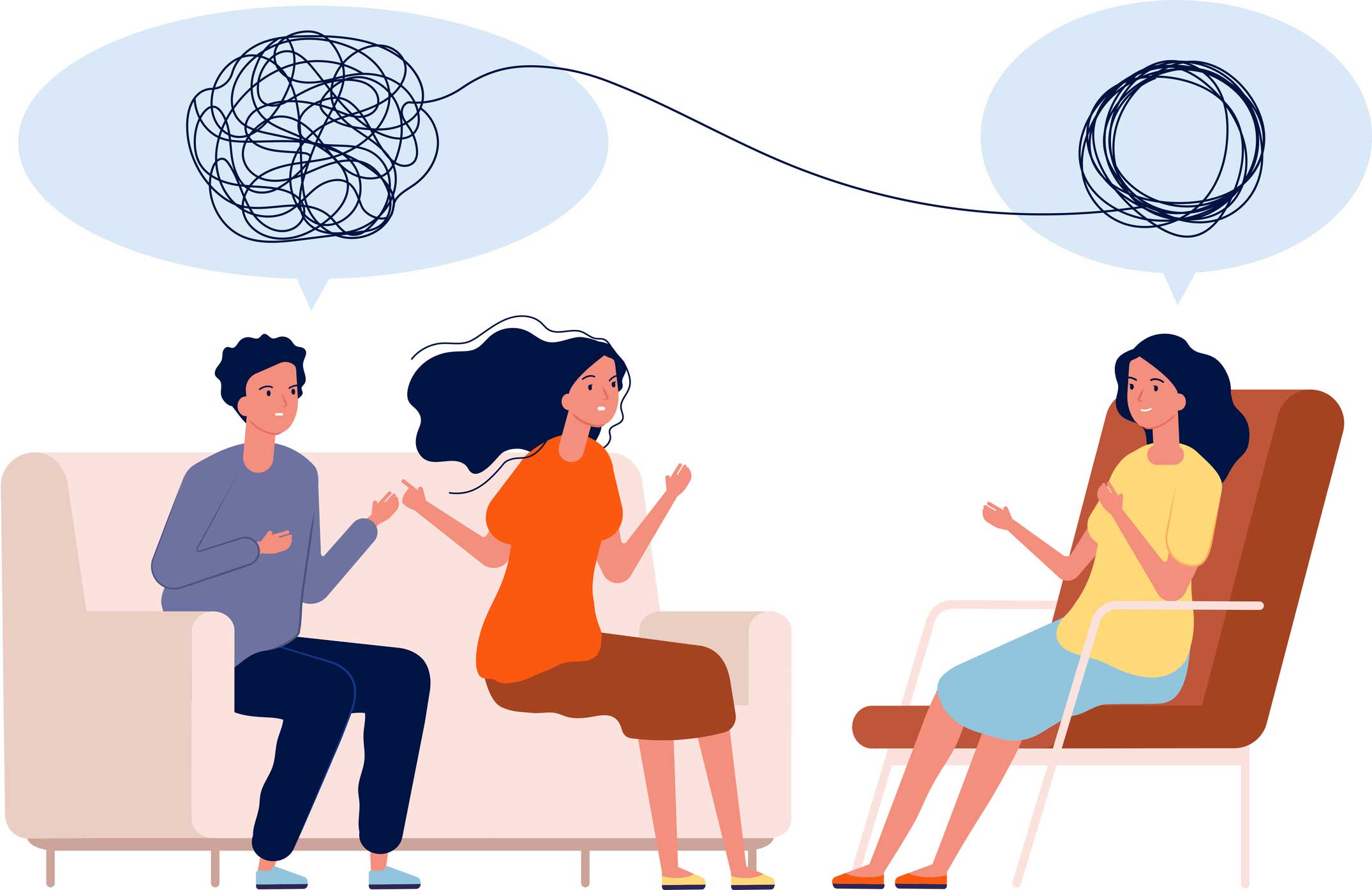Last month, Pete and Ellyn joined Casey Truffo to present a teleseminar called, “What Keeps Smart, Savvy Therapists from implementing good marketing ideas comfortably and effectively?”
After the seminar, Pete wrote some follow up thoughts on marketing and integrity. We thought his analysis was relevant enough to share with you.
Further reflections about marketing for therapists:
Even after the teleseminar was over, I couldn’t stop thinking about why therapists avoid marketing. Yes, there are challenges because it’s not taught in graduate school training. And yes, marketing is often incompatible with therapists’ values.
But I think there is an additional reason. It’s one that I have never heard spoken by anyone, anywhere. It has to do with the high integrity of our profession.
Here’s what I mean. It started with the mental health profession gaining reimbursement from the insurance empire. This has turned out to be a Faustian bargain.
The good news is that we got acceptance. Now we are included with the medical big boys. We can diagnose and treat problems that are a medical condition. Take a look at the insurance forms – “medical necessity” is in the fine print at the bottom of the page.
The reality is that most of what is treated in our office doesn’t fit the medical model. People come in with problems of living and struggling to adjust to unpleasant, painful circumstances, or difficult people in their lives. This is not a medical condition.
There is no solution for the problem of living. Every solution to a complex problem, no matter how perfect, sets the stage for new problems and stresses. If you help someone who is heartbreakingly shy, they will now take on challenges they have avoided because of their shyness. This can lead to a whole new set of awkward emotions and feelings of insecurity.
Great – we solve one problem and it starts another. The medical profession doesn’t seem to struggle with this issue. A person has malaria, gets treated, and it’s over. Everyone is happy. The physician doesn’t tell the patient, “Well now that you are well, there are going to be some negative repercussions. You are going to have a new set of medical problems because we successfully treated your malaria.”
The problem of living is not neatly diagnosed and treated. Even when therapy works well, it often ends without a noticeable relief or return of energy like the feeling we get when we recover from the flu. In therapy there is a sharing of appreciations about gains made and the challenges ahead.
Sometimes clients stop suddenly. They may or may not have made progress. Perhaps their expectations were too high and their efforts too low. Perhaps the amount of fear they experienced would not allow anyone into their psyche. They leave and we don’t really know why.
The point is we are in a profession that is basically a messy art. And all the evidence based research in the world won’t change the fact we are in a very inexact profession.
There is no doubt we help people. But we cannot with confidence say we can cure all the people who have this disorder or that struggle. At some level I think it chips away at the self respect or feeling of being competent. Many of us get into the profession because we are helpers and rescuers. When we fail to help (by some impossible internal standard) we feel like we have failed.
And because we cannot document success like the medical profession, we do not feel like we can market our services with integrity. A part of us feels a little fraudulent describing the results we can produce about a given problem. What we can achieve is dependant partially on what the client allows us to do and the effort they put into it. In the medical model, the benefits of penicillin do not depend on the patient’s motivation or ability to understand the disease.
What’s worse, a newly minted therapist is now told to go out and market their services. If new therapists felt like I did after my Ph.D., they will not feel anything like a qualified expert. Good luck on confidently marketing your skills when you feel greener than a sapling in springtime.
Ultimately I think the biggest problem is not that we aren’t taught to market or that we have a poverty mentality (which is true in some cases) but that we are trying to market a service with a horribly unrealistic standard. Our media is obsessed with solutions from experts. While doing over 100 media interviews with reporters ranging from “Good Morning America” to small local newspapers, not one reporter asked me or Ellyn, “How can someone think differently or feel differently about this problem?”
They all ask, “What can they do?” implying that there are relatively clear or simple action steps someone can do to solve their problem. The “expert” then suggests a few action steps and the reporter feels good that the reader or viewer has a solution.
For a couple of years I wrote a column in the “San Jose Mercury News” on relationships. Readers wrote in questions and I had about 200-250 words to answer questions like, “We have been married twenty years and our sex life is fading away –what can we do about it?” My directive was to write an answer that was both entertaining and informative. Actually I liked the challenge and found it to be quite satisfying to arrive at a well crafted and interesting response. At the same time, it was unreal to give a substantial solution without knowing more details of their situation.
The bottom line is we are held to a standard that is horribly unfair about giving short and quick answers to solve problems of living. We also brought it on ourselves by fighting to gain admission to a medical club that initially didn’t want us (the insurance industry); and upon gaining admittance discovering their rules and regulations are a poor fit for our craft.
So what is the solution to marketing your services with integrity? What can you say with credibility? What can you say without including so many qualifiers that you sound like your message has been sanitized by a litigation attorney? We will address that subject on the next call about getting over the emotional blocks to marketing. Mostly I wanted to rant about my reflections on the totally unrealistic standards we unwittingly hold for ourselves. It’s no wonder so many of us feel uneasy when we think about marketing our services. Interesting, isn’t it, the hidden anxiety is about integrity?
Are you interested in listening to the teleseminar, “What Keeps Smart, Savvy Therapists From Implementing Good Marketing Ideas Comfortably and Effectively?” The downloadable version is available online as the first session in a two-part series. Part two is on overcoming emotional blocks to marketing. For more information, visit Savvy Therapists' Marketing.

 We respect your privacy.
We respect your privacy.



